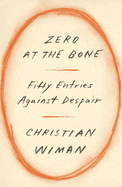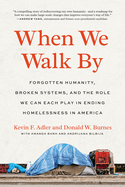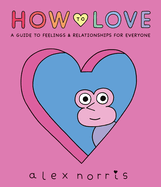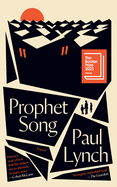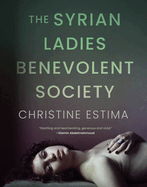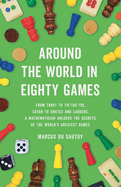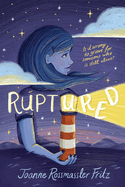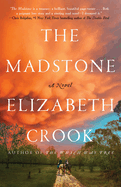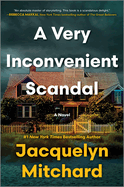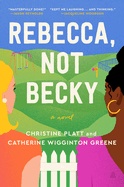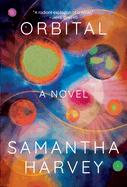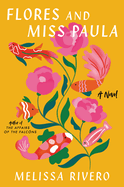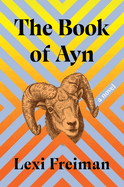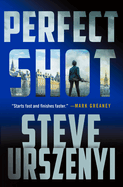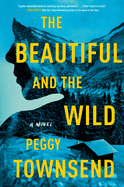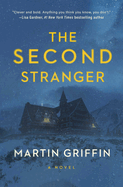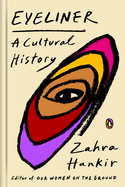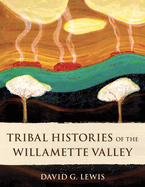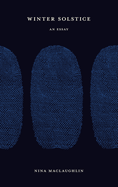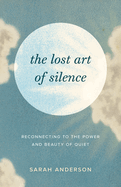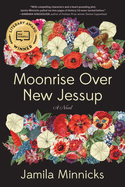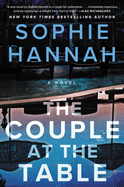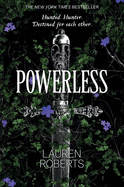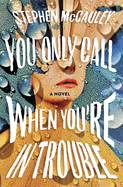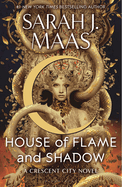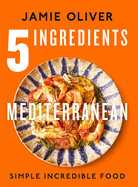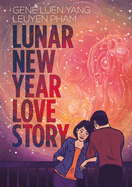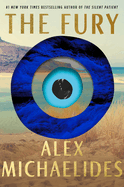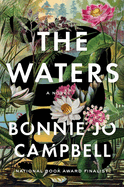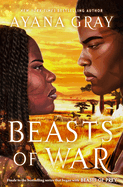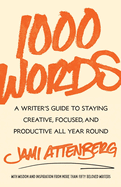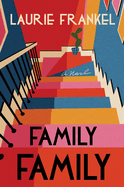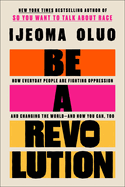Friday, December 8, 2023
Among the stellar nonfiction this week: Zero at the Bone by poet Christian Wiman, "an uncommon work from an uncommonly beautiful mind, full of compassion and built of dazzling intellect"; Kevin F. Adler, Donald W. Burnes, et al. bring humanity to homelessness in When We Walk By, a "brilliant book [with] clear solutions toward a better and brighter nation where everyone can have a roof over their heads"; and How to Loveby Alex Norris, a "funny, heartfelt book of comics [that] offers refreshing advice to teens and adults on singledom, dating, and falling in love for people of many sexualities and genders." Plus so many more!
In The Writer's Life, Shelf Awareness speaks with Paul Lynch about his Booker Prize-winning novel Prophet Song (reviewed in this issue).
Prophet Song
by Paul Lynch
The ease with which a democratic country can degenerate into a police state is the premise of Prophet Song, Paul Lynch's frightening, all-too-plausible novel, winner of the 2023 Booker Prize.
One night, molecular biologist Eilish Stack is at home in Ireland, looking outside as the dark, in Lynch's elegant prose, "gathers the last of the leaves and the leaves do not resist the dark but accept the dark in whisper." Two officers from the secret police tell her they're looking for her husband, Larry, the deputy general secretary of the Teachers' Union of Ireland. When Larry goes to the police, detectives inform him that his behavior "looks like the conduct of someone inciting hatred against the state." In the aftermath of a protest march, authorities use the newly passed Emergency Powers Act to round up union personnel. Larry is among them. He doesn't return.
So begins a nightmare for Eilish and her family that Lynch (Grace; Beyond the Sea) describes with effective immediacy. When 16-year-old son Mark is called for national service, Eilish wants to send him to boarding school over the border, but Mark joins the rebel forces instead. Daughter Molly lapses into depression. Younger son Bailey starts exhibiting hostile behavior at home. Simon, Eilish's widowed father, suffers from encroaching dementia. It's a lot for Eilish to deal with, even before the fighting comes to Dublin. Lynch presents it all with matter-of-fact poetry that makes the events credible and serves as a chilling reminder that no country is immune. Prophet Song is a disquieting novel from an exceptional writer. --Michael Magras, freelance book reviewer
Discover: In Prophet Song, Paul Lynch constructs an all-too-credible fable about democratic Ireland's descent into a police state, and its effect on a biologist, her trade unionist husband, and their children.
The Syrian Ladies Benevolent Society
by Christine Estima
The 13 superb stories in Christine Estima's debut could easily stand alone; reading them together turns the collection novel-esque, revealing how diasporic generations eventually culminated in the life and experiences of contemporary Arab Canadian Azurée Ghiz.
In 1860, Azurée's great-great-great grandmother Holwé flees Lebanon with her daughter, Hana, to escape religious persecution. By the second story, the journey's success is well established, centering the family of Hana's son Shafeek and his wife, Alzira, settled by the 1930s among the "community of Arabs populating Montreal's Little Italy." Alzira's husband takes the spotlight, he who most enjoys dressing in women's clothing. Their son Ali dies prematurely, but he leaves behind a daughter, Fadwa, who becomes a reckless World War II spy behind enemy lines. Ali's sister marries a quiet man; their daughter Naseema's romantic relationships fail, but not before she has her own two daughters. The elder is Azurée, born of an overnight affair with a Syrian stranger Naseema meets on an Italian train. Azurée's troubled coming-of-age and her complicated relationships with family and lovers become the focus of the collection's majority.
Estima, a Canadian of Lebanese, Syrian, and Portuguese ancestry, writes intimately of "the gaggle of non-benevolent benevolent ladies," "obscene tragedy," and sex that is "easier to clean up than war." Her humor, too, is appreciatively irreverent, with lines like "if heaven is full of louts... then hand me the sunscreen for hell." In writing across cultures, borders, and centuries, Estima credits her ancestors with direct inspiration: "I hear your voices in my veins; you will not be forgotten." Neither will Estima's enthralling writing. --Terry Hong
Discover: Christine Estima sublimely highlights the multigenerational lives of an Arab Canadian family through a superb debut collection of 13 interlinked short stories.
The Madstone
by Elizabeth Crook
Set in Texas in 1868, The Madstone is a gritty journey tale, a mystery, and a tender story of young love by Elizabeth Crook (The Which Way Tree). Benjamin Shreve writes to four-year-old Tot in a letter that narrates their harrowing 10-day trek; he plans for it to be given to the boy when he is 19. "Otherwise you might tinker too much in your mind about how things might of been different, when you won't even know how they actually was," he explains.
Nineteen-year-old Benjamin, a small-town carpenter, awaits the hoped-for return of his long-missing sister. When a traveler called Dickie, who has missed his stagecoach, entreats Benjamin to drive him to the next town, the boy's chivalry upends a quiet life. They find the coach surrounded by two motley crews of highway robbers, who are threatening passengers Nell, "undoubtedly in a family way," and young Tot. Benjamin writes, "we could not forsake a woman and child to their mercy," chronicling his unwitting commitment to shepherding Nell and Tot's flight from a violent family feud, on safe passage to New Orleans. Rattlesnake-infested prairies, Dickie's possibly cursed gemstone, reluctant mules, Nell's brutal brothers-in-law, and her impending childbirth propel the story, but no peril dissuades Benjamin's growing love for the mother and son.
A cast of quirky characters includes a "Negro Seminoll," a vital ally and a reminder of the prejudices of the post-Civil War South. Fast-paced and grisly, with notes of surrealism and humor, The Madstone is at its heart a lyrical testament to unselfish virtue. --Cheryl McKeon, Book House of Stuyvesant Plaza, Albany, N.Y.
Discover: In 1868 Texas, a compassionate young carpenter unwittingly becomes a protector of a pregnant woman and her little boy in a treacherous journey across the prairie.
A Very Inconvenient Scandal
by Jacquelyn Mitchard
"There was just something about Carlotta," thinks Frankie Attleboro, from whose perspective Jacquelyn Mitchard's A Very Inconvenient Scandal is told. Actually, in this suspense story nestled in a baroque family drama, Carlotta is just one of several well-woven characters--the impetuous Frankie among them--capable of curious behavior.
The novel begins with a summer summons to Cape Cod: one year a widower, Frankie's marine conservationist father announces that in a few days he'll be marrying Frankie's childhood best friend, Ariel, who is having his baby. Frankie, a documentary photographer, is undone--by the surprise, by the queasy-making age gap, by the disregard for her late mother's memory. So much for her own news: like Ariel, Frankie is pregnant and engaged. Into the meshugaas steps Carlotta Puck, who left the Cape more than a decade earlier, when her daughter, Ariel, was a teenager. As Carlotta insinuates herself into her daughter's new family, Frankie reflects on her own mother's suspicions about Carlotta even before the woman abandoned Ariel.
Readers who pick up A Very Inconvenient Scandal for the suspense promised by a novel written by Mitchard (The Deep End of the Ocean; The Good Son) should be patient: the book is front-loaded with Frankie's story--she nurses her wounds, gives birth, considers professional opportunities. The novel is about how making peace with the present requires making peace with the past; as Frankie sees it, "Carlotta's return had dug up old histories, and a shipwreck that had lain undiscovered for centuries was still a shipwreck." --Nell Beram, author and freelance writer
Discover: Several well-woven characters are capable of curious behavior in this Cape Cod-set suspense story nestled in a baroque family drama, in which a widower makes a shocking announcement.
Rebecca, Not Becky
by Christine Platt and Catherine Wigginton Greene
Rebecca, Not Becky by Christine Platt (The Afrominimalist's Guide to Living with Less) and documentary filmmaker Catherine Wigginton Greene (I'm Not Racist... Am I?) is a hugely enjoyable novel that nonetheless takes a hard look at prejudice and performative allyship in an affluent Northern Virginia community, alternating between the perspectives of a white woman and a Black woman reconsidering their biases and privilege.
De'Andrea Whitman reluctantly gave up her law career and Atlanta support system to move to Rolling Hills for her husband Malik's new job and the proximity to his mother's top-notch dementia care facility. However, their daughter, Nina, may be the only Black student at the private school. Marijuana (vaping or edibles) is De'Andrea's usual coping mechanism, but her therapist, Dr. Jones, challenges her to try to make one white friend instead. Rebecca Myland shed the nickname "Becky" when it became cultural shorthand for clueless white ladies. She desperately wants to do the right thing: make the perfect home for her husband, Todd, and daughters Lyla and Isabella; use a reminder app to complete her lengthy daily to-do lists; and be a model white ally.
These two protagonists have more in common than they realize. But when the diversity committee's controversial pet project--getting a statue of a Confederate general removed from the local park--makes national news, the resulting ruckus threatens their fragile friendship. Platt and Greene go beyond stereotypes to consider the nuances of the situation, and despite the serious issues it tackles, this is a fun read, reminiscent of Terry McMillan and Curtis Sittenfeld. --Rebecca Foster, freelance reviewer, proofreader and blogger at Bookish Beck
Discover: Two women--one white and one Black--navigate the nuances of racism in their Northern Virginia community in this addictively readable collaborative novel.
Orbital
by Samantha Harvey
Samantha Harvey (Dear Thief) offers readers a slim but radiant novel of space, exploration, and meaning-making in Orbital, her fifth novel, which details the myriad depths held in just one day in the lives of six astronauts orbiting the Earth on an international space station.
Six men and women circle the planet at 17,500 miles per hour, a pace that takes a standard 24 hours and "throws sixteen days and nights at them in return." This mind-bending math is just a small slice of the disassociation thrust upon the six in space. They whirl about the Earth at an unfathomable pace that feels to them like stillness, tracking days with ticks on the wall, making lists of joys and anxieties and memories, gazing at photos, and sending e-mails back to family at home. They study microbes, viruses, fungi, and bacteria; observe 40 mice and their reactions to adjusted gravity in space; make notes on the human experience of space stations and space itself; observe the Earth and its weather systems from miles and miles away.
With Orbital, Harvey gives readers a powerful novel that, in less than 200 pages, manages to explore questions of philosophy and religion, faith, existence, meaning-making, art, grief, and gratitude, just to name a few. Her luscious and lyrical language is as close to poetry as it is to prose ("Outside the earth reels away in a mass of moonglow, peeling backward as they forge towards its edgeless edge"). Orbital is a gift of language, a meditation on meaning, and a beautiful exploration of perspective. --Kerry McHugh, freelance writer
Discover: In her fifth novel, Samantha Harvey offers readers a lyrical and poetic exploration of space, perspective, and appreciation for the planet that gives us life.
Flores and Miss Paula
by Melissa Rivero
Melissa Rivero (The Affairs of the Falcóns) sensitively explores the complicated bond between a Peruvian American mother and daughter in her second novel, Flores and Miss Paula. Told in alternating chapters from each woman's perspective, the novel opens three years after the death of Martín, the beloved husband of Paula and father of Mónica Flores (who goes by her last name). Flores is stunned to find a note under her father's urn, written in her mother's handwriting and begging for forgiveness, and wonders what (and who) is involved in that request. Rivero delves into the family's struggles and triumphs to draw an intimate portrait of an immigrant family with conflicting needs and desires, but undergirded by great love.
Thirtysomething Flores is marking time, crunching numbers at the aquarium start-up where she's worked for years. Paula has found new purpose and community in her job at the local DollaBills store, but she still worries about her daughter. Both of them struggle to share their emotions with each other, or express the grief they both know they have. When Flores receives a notice that they'll have to leave their apartment, she wonders what it might be like to live on her own, separate from her mother.
Rivero's story unfolds against a vivid backdrop of New York City in the summer, complete with fireworks, Latin American festivals, humid nights, and the push-pull of living in a tightly knit community yet wanting to forge one's own path. Wryly humorous and often tender, Flores and Miss Paula explores the generational divide between two strong women, the effects of grief, and the possibilities of change. --Katie Noah Gibson, blogger at Cakes, Tea and Dreams
Discover: Melissa Rivero's wry, thoughtful second novel explores the complex bond and shared grief of a Peruvian mother and her millennial American daughter.
The Book of Ayn
by Lexi Freiman
An author rebounds from a devastating New York Times book review with the help of Ayn Rand in The Book of Ayn, the snarky sophomore outing from Lexi Freiman (Inappropriation). In this irreverent send-up of cancel culture, Anna's writing career takes a direct hit after "the paper of record" calls her darkly comic novel about the opioid epidemic in America "classist." Depressed by the rejection of her book, one she believes was "so good it metabolized its own badness," Anna discovers her baked-in contrarianism mirrored in the person and ideas of Russian émigré Ayn Rand, "the godmother of American libertarianism." Her uber-woke friends are less than supportive as Anna immerses herself in Randian thought. ("She's the devil: she literally wore capes.")
Anna, broke and wounded, is inspired by Rand's radical notions of self-esteem and plans a new book about her, a project that takes her from the Roarkian steel skyline of New York to Tinseltown itself, Los Angeles, to write a pilot about her muse. After a hilarious bathroom epiphany, however, Anna explores Rand's ideological nemesis--altruism--by joining a meditation center workshop on the island of Lesvos that promises to help "kill your ego." Freiman's prose, which is quirky and awkward at turns, skewers political culture with playful observations of members of Gen Z and their Rolodex of causes, peeling away labels to reveal the humans underneath. The Book of Ayn is a remarkably funny and thoughtful walk about the realm of ideas, the ideal man, and the ultimate "I" of self-love and self-acceptance. --Peggy Kurkowski, book reviewer and copywriter in Denver
Discover: A disillusioned writer falls under the spell of the controversial thinker Ayn Rand as she embarks on a journey of self-discovery in this deliciously comic yet deeply insightful novel.
Mystery & Thriller
Perfect Shot
by Steve Urszenyi
Steve Urszenyi jump-starts Perfect Shot, his exciting, action-packed debut novel, by plunging into the high-stakes world of FBI special agent Alexandra "Alex" Martel.
Alex has cultivated her skills to become the ultimate intelligence agent: she is well-versed in fighting while perceptive to her surroundings, attuned to the most seemingly minor of movements. Alex began her career as a combat medic before becoming a sniper--colleagues call her "Shooter"--and then joining the FBI, which has classified her as a weapon of mass destruction. Alex, who is being recruited by the CIA, often works with Interpol. She and her team seek stolen nuclear material that she believes may be headed for Paris, where world leaders plan to attend the yearly Peace Summit. Alex discovered the plot from a message left in the purse of a murdered British intelligence officer, who also was a close friend. Despite Alex's skills, her theory is belittled by her male colleagues--until Russian agents take a nuclear bomb from a U.S. Air Force base in Turkey. The investigation takes Alex and a CIA agent through London, Turkey, and Paris, including a tensely claustrophobic chase in the catacombs.
Urszenyi pulls on familiar tropes--a loner lead character with a tragic past, laser-focused on work--and melds them into a highly entertaining plot in this series launch. Readers will gravitate toward Alex, who quickly emerges as a sturdy character who thrives on taking control of the "chaos around her." --Oline H. Cogdill, freelance reviewer
Discover: In this high-octane debut, a female FBI agent who is an expert sniper is on the trail of a nuclear bomb through the streets of Paris.
The Beautiful and the Wild
by Peggy Townsend
A woman learns how far she'll go to protect her son in Peggy Townsend's The Beautiful and the Wild, a twisty, suspenseful story that straddles the line between survival novel and domestic thriller.
Liv Russo is locked in a shipping container in the Alaskan wilderness. Just down the hill, her husband, Mark; their son; and Mark's lover are eating dinner. Left alone and terrified, Liv wonders how she got there--and how she'll escape. Townsend (See Her Run) uses a single point of view to bring readers through the early days of Liv's marriage, as Liv gradually reveals the actions that brought her to this awful situation. How did Mark turn from a free-spirited film documentarian to a survivalist who abandoned his family? And what secrets is Liv hiding?
The Beautiful and the Wild isn't the straightforward survival story it at first appears to be. Mark seems a villain at some times and, at others, a charismatic man looking for the meaning of life. Though she's clearly driven by the need to survive and to protect her son, Liv is also hard to pin down. Townsend keeps readers guessing, evoking modern hits like The Girl on the Train and Gone Girl as she casts doubt on Liv's character and recollection of events.
The Beautiful and the Wild is full of danger--hunger, medical needs, even bears--but the complex motivations of the humans at this remote Alaskan compound drive the plot to a devastating, satisfying conclusion. --Suzanne Krohn, librarian and freelance reviewer
Discover: A desperate woman drives her son to Alaska and gets trapped in a deadly mess she couldn't have imagined in this novel that's part domestic suspense, part wilderness survival thriller.
The Second Stranger
by Martin Griffin
Good premises can come easy; sustaining them across a novel's length is the trick. Martin Griffin does precisely this, and then some, in The Second Stranger, a Misery-evoking debut thriller set in the blizzard-blasted Scottish Highlands.
As the novel opens, 30-something narrator Remie Yorke has begun her final shift as night manager of the Mackinnon, a tucked-away Highlands hotel. She's the only staff on the premises until morning, and after the last two guests leave, the Mackinnon will close until spring and she'll be off to Chile to realize a travel dream: "my final shift felt like it was the start of something." That's one way of putting it. While Storm Ezra is blasting away, a man arrives, telling her he's PC Gaines of Police Scotland: he's been in an accident, his radio is down, and he needs the phone--a dangerous criminal from the nearby jail has escaped during a prisoner transport. Not long afterward, another man claiming to be Gaines arrives at the hotel.
Remie's effort to determine which man is the imposter consumes the first chunk of The Second Stranger, after which the novel tracks her as she figures out her next moves. The result is a thriller as pure as the snow that tries to thwart the book's tiny cast, putting them through both physical and psychological endurance tests. Griffin adroitly metes out Remie's remembrances of her late convict brother, gradually clueing in readers to the idea that something besides her life is at stake. --Nell Beram, author and freelance writer
Discover: In this adroit debut thriller set in the blizzard-blasted Scottish Highlands, two different men arrive at a hotel claiming to be the same police officer looking for an escaped criminal.
History
Eyeliner: A Cultural History
by Zahra Hankir
With the enigmatic and alluring Queen Nefertiti of ancient Egypt as her mystical muse, Lebanese British journalist Zahra Hankir invites readers on an intriguing journey through time and across continents in Eyeliner: A Cultural History. Hankir, comparing her subject matter to "ink itself," examines how eyeliner helps us deliver messages about ourselves to the world, and its use as a transformative marker of maturity, drama, seduction, sexuality, strength, and rebelliousness that is surprisingly aligned across subcultures and eras.
Hankir (editor of Our Women on the Ground) introduces multiple varieties of eyeliner, including kohl, a word derived from the Arabic, which is used for spiritual and healing purposes as well as for beautification and to repel the sun. Eyeliner opens with the story of Queen Nefertiti and describes how her kohl-rimmed influence reigns supreme across a vast cultural landscape that includes Instagram influencers, drag queens, Mexican American cholas, Japanese geisha, Iranian activists, and celebrities such as Beyoncé.
The author travels far in pursuit of her research, expressing a contagious wonder at the layers of common ground a simple object like eyeliner offers people of diverse backgrounds. To the Bedouin community she meets in Jordan, kohl is a symbol of belonging, while performers in India wear it so they can "dance with their eyes."
Eyeliner features a particularly dazzling chapter on the late Amy Winehouse and the hypnotic, disarming gaze of her heavily lined eyes. Reading Hankir's well-written, absorbing debut, one can't help but admire the versatility and influence of this humble beauty staple, speaking as it does "a universal language of transformation." --Shahina Piyarali, reviewer
Discover: A Lebanese British journalist examines the versatility and global influence of eyeliner, sharing stories of those who count on its powers of transformation, including the late Amy Winehouse.
Tribal Histories of the Willamette Valley
by David G. Lewis
Oregon Indigenous historian David G. Lewis provides an exhaustive overview of the Indigenous peoples of the Willamette Valley in Tribal Histories of the Willamette Valley, which includes documentation of various kinds: personal accounts, maps, photographs, and written records. These sources demonstrate what transpired when Native populations were met with outside forces that took their land, confined them to reservations, and enforced compulsory education of their children in a protracted, dehumanizing act of colonization.
Settlement of what is now known as Oregon involved the U.S. government and settlers displacing such Native peoples as the Kalapuya, Chinook, Molalla, and Klamath in coercive and violent ways, though history has left that story largely untold--or actively erased it. The official U.S. history includes mention of Indigenous peoples in the Declaration of Independence but refers to them as "merciless Indian savages," and places the burden of conflict entirely on the tribes.
"Tribes were in the way of American expansion and removal of the tribes to reservations was not enough," writes Lewis. "The Indian office began to institute policies that would cause the eventual elimination of Native people through systems of assimilation. Education could teach them western culture and eliminate their 'Indian' culture." The author tracks the trajectories of the various tribes and individual tribal members to demonstrate the full picture and pathos of cultural assimilation and destruction.
Lewis's book is a detailed account of Indigenous peoples and the impact of U.S. expansion throughout the 19th and 20th centuries--with clear reverberations into the present day. --Elizabeth DeNoma, executive editor, DeNoma Literary Services, Seattle, Wash.
Discover: David G. Lewis's book is an important, well-documented corrective to the dominant narrative around U.S. settlement of the Pacific Northwest and treatment of the Indigenous peoples living there.
Social Science
When We Walk By: Forgotten Humanity, Broken Systems, and the Role We Can Each Play in Ending Homelessness in America
by Kevin F. Adler, Donald W. Burnes, Amanda Banh, and Andrijana Bilbija
Books, when properly executed, pry back the veil and show readers a shared humanity. When We Walk By: Forgotten Humanity, Broken Systems, and the Role We Can Each Play in Ending Homelessness in America is one such book. Chronic homelessness is one of the greatest shames of the United States, a country with so much wealth and resources that still allows upward of six million people to go unhoused every year. Why is this?
The authors make the case that America as a nation, as "the housed," has collectively lost the ability to see the person behind the panhandler, the human behind the held-up sign. They write at the book's opening: "Everyone is someone's somebody." The book does a brilliant job of unpacking several concepts, one of them being "relational poverty." As a man named Adam says to one of the authors, "I never realized I was homeless when I lost my housing, only when I lost my family and friends." This demonstrates why homelessness is so intensely difficult for people to escape: the sheer lack of connections as they turn invisible. The authors also shed light on who "the homeless" are to begin with. They are not just those addicted to drugs or dealing with mental illness, but a cavalcade of people in situations that are dire--and that could happen to nearly anyone. This is the point: seeing them, first and foremost, as people. And this book does so beautifully. --Dominic Charles Howarth, book manager, Book + Bottle
Discover: Bringing humanity to homelessness, one of America's biggest problems, this brilliant book offers clear solutions toward a better and brighter nation where everyone can have a roof over their heads.
Essays & Criticism
Zero at the Bone: Fifty Entries Against Despair
by Christian Wiman
Zero at the Bone: Fifty Entries Against Despair by poet Christian Wiman (Hammer Is the Prayer; Once in the West; My Bright Abyss) serves as counterbalance to a world inclined to confident statements and loud rally cries. It claims little certainty, choosing instead to focus on the universal and the ineffable in its mélange of critical essays, personal anecdotes, quoted passages, and poems. Wiman wanted to create "a book true to the storm of forms and needs, the intuitions and impossibilities, that I feel myself to be. That I feel life to be." Even his prose is driven by poetic impulses and, for Wiman, poetry is a reflection of--or a voicing of--unknowable things rooted in spiritual faith.
The essays are full of insights on poets like Lucille Clifton or Emily Dickinson, but the poems punctuating those longer entries are the thing. They exceed every expectation, offering light and sound and silence, as seen in lines from "Ars Poetica," a poem in two parts: "--a plum and othering dusk/ something renunciatory in the light,/ until the sparrow takes the old tree's shape/ and the trees untreed are everywhere./ If I could let go/ If I could know what there is to let go/ If I could chance the night's improvidence/ and be the being this hard mercy means." Zero at the Bone is a book about doubt and despair, love and belief--and always about the power of language. Similar to a commonplace book, it is an uncommon work from an uncommonly beautiful mind, full of compassion and built of dazzling intellect. --Sara Beth West, freelance reviewer and librarian
Discover: Similar to a commonplace book of quotes and jotted ideas, Zero at the Bone looks at despair, love, and doubt through the lenses of poetry and faith, while questioning if they might be all one thing.
Winter Solstice
by Nina Maclaughlin
Nina MacLaughlin roams darkness and light, life and death, and other dichotomies in Winter Solstice, a four-part essay (a version of which was orginally published in the Paris Review Daily) that squires readers into the heart of the cold season. In MacLaughlin's follow-up to Summer Solstice, she considers winter through four blurred facets: light, shadow, passion, and flame. She writes, "It is the animal in us that knows the dark. This season stirs that animal in us, and stirs the memories... of the ancient dark, of a time before gods, before form and words and light." Alongside the more sensual aspects of winter, the depths of darkness are plumbed--from human grief to the underworld of classic Greek mythology.
But light is also examined: the playful stringing of holiday bulbs that opens the first essay as well as more sacred, ancient examples, directly tied to celestial objects. In addition to spanning time, Winter Solstice also takes readers on a dreamy journey with stops ranging from the icy banks of a Northeastern river to a deep tomb in Ireland from 3200 BC: "If you are someone who feels ghosts... you might feel them here." MacLaughlin (Wake, Siren; Hammer Head) deftly expands personal anecdotes to collective truths and to profound insights, yet she finds a way to ground readers when abstraction threatens.
In rhythmic and occasionally repetitive prose, MacLaughlin weaves wintertime memories, history, philosophy, mundanity, and mythology, creating a mesmerizing evocation of the quiet, dark season. --Nina Semczuk, writer, editor, and illustrator
Discover: Nina MacLaughlin's Winter Solstice isa warm yet haunting examination of winter.
Body, Mind & Spirit
The Lost Art of Silence: Reconnecting to the Power and Beauty of Quiet
by Sarah Anderson
Few people would disagree that the world is becoming an ever noisier and more intrusive place. But as British writer and artist Sarah Anderson argues in her thoughtful The Lost Art of Silence: Reconnecting to the Power and Beauty of Quiet, consciously bringing more silence into our lives may be one antidote for the pervasive anxiety and stress of the modern age.
Since 1979, she has been the proprietor of the Travel Bookshop in London's Notting Hill, and she draws on her own travels to places like Antarctica, a silent meditation retreat in Spain, and Lake Baikal in eastern Siberia to add a personal flavor to the more academic aspects of her study. She wrote much of the book during a time that became for her, like many people, a forced encounter with more silence--the Covid-19 lockdown.
In her treatment of the subject, Anderson opts for breadth rather than depth, drawing on an impressive array of both historical and contemporary source material. In that process, she can be both erudite and pleasantly eccentric. But even as she advocates for more silence in our lives, Anderson acknowledges that it's not an unalloyed good. She devotes a section, for example, to what she calls the "darker sides of silence," especially the ways it has been abused in prison systems.
Invoking Blaise Pascal's observation that "all of humanity's problems stem from man's inability to sit quietly in a room alone," Anderson concludes with some thoughts about how we might incorporate more quiet into our lives. Anyone looking for inspiration to turn down the world's volume will find a useful starting point here. --Harvey Freedenberg, freelance reviewer
Discover: Sarah Anderson believes everyone could benefit from more silence in their lives and makes that case from a variety of intriguing perspectives.
Science
Around the World in Eighty Games: From Tarot to Tic-Tac-Toe, Catan to Chutes and Ladders, a Mathematician Unlocks the Secrets of the World's Greatest Games
by Marcus du Sautoy
Marcus du Sautoy (The Great Unknown) is a thinker of considerable breadth: the Simonyi Professor for the Public Understanding of Science and professor of mathematics at the University of Oxford is also a creative writer, musician, and games expert. Around the World in Eighty Games uses the frame of Jules Verne's adventure, exploring games from the Middle East to Europe, with stops in every continent along the way. Du Sautoy provides a wealth of information, examining backstories and explaining the mathematics behind each game. But perhaps the most valuable part of this book is the way it reveals the global and the universal: "Just as the stories that people tell can help me understand a different society, I have found too that the local games people play can reveal much about the differences and similarities across different cultures."
Du Sautoy suggests that even reading the book can be a game, encouraging readers to use a six-sided die to progress through the numbered games. There is even a handy checklist at the back of the book, along with a substantial bibliography for those looking to learn more. Occasionally, the dice version of the game falters as one section might make repeated reference to the game immediately preceding it; however, that small hiccup will just make readers want to return for more. Chess, Cluedo, Wordle, dominoes: there's something for everyone, making this book perfect for gamers and math lovers of all stripes. --Sara Beth West, freelance reviewer and librarian
Discover: Around the World in Eighty Games, a perfect gift for gamers and puzzle fans, provides a wealth of information, examining backstories and explaining the mathematics behind each game.
Now in Paperback
Moonrise over New Jessup
by Jamila Minnicks
Teenage orphan Alice Young, fleeing an abusive landlord, buys the only bus ticket she can afford in 1957. Her stop in Birmingham, Ala., presents a wondrous sight: "Up and down the avenue, Negroes of every shade came together like the dusk in a fall forest." And there she stays. In Moonrise over New Jessup, Jamila Minnicks's lyrical debut, Alice narrates her arrival in a town "born of the swamp, from days of tribulation" up to her years as an integral member of a community on the cusp of change.
Minnicks's novel, winner of the 2021 PEN/Bellwether Prize for Socially Engaged Fiction, provides an unusual perspective on the civil rights movement. New Jessup was founded in 1904 by and for "all community-minded Colored people." In 1957, the city's "old heads" are incensed by ripples of brewing discontent. Alice, who marvels at the "air-breathing ease with which Negroes went about their day," cannot imagine conflict. But she's immersed in a clash of ideologies when she falls in love with Raymond and learns he's a leader of the National Negro Advancement Society, working for voting rights and, instead of integration, municipality status for New Jessup. Alice recalls "breathing all the blackdamp of hatefulness" during her life and resists the organization's plans for confrontation--but eventually offers support to her husband and "this town and its folks where I had thrived." Tensions rise due to discord within the movement and violence from outside, but Minnicks's New Jessup is a close-knit community destined to prosper. The first-person narration, with its authentic regional dialect, infuses this novel with fresh appreciation for those who struggled for racial equality. --Cheryl McKeon, Book House of Stuyvesant Plaza, Albany, N.Y.
Discover: In 1950s Alabama, a young woman must decide if she supports the growing civil rights movement her town's all-Black population resists.
The Couple at the Table
by Sophie Hannah
The lingering challenge in the engrossing The Couple at the Table by Sophie Hannah (Closed Casket; The Monogram Murders; The Other Woman's House) isn't who had a motive to fatally stab Jane Brinkwood at her father's couples-only Tevendon Estate Resort, but who did not have a reason to murder the vile, entitled woman. Frequently called "a nasty piece of work," Jane threatened every guest and staff member, accusing them of sending her menacing notes while she honeymooned. Jane was most disturbed by a note that told her to beware of the couple at the next table. But which table? Seating wasn't assigned and the tables mysteriously had been moved during the night. Jane saved most of her venom for guest Lucy Dean, whose ex-husband, William Gleave, left her for Jane two weeks after Lucy gave birth to their daughter. Lucy, despite maintaining that she is now happily engaged to the kind Pete Shabani, writes letters to the other guests, trying to ferret out Jane's killer. The case consumes curmudgeonly Detective Constable Simon Waterhouse and his socially aware wife, Sergeant Charlie Zailer, making another appearance in this 12th entry in the Zailer & Waterhouse Mystery series. The two detectives were vacationing at the British estate at the time of the murder and had a ringside seat to Jane's tantrums.
Hannah's expert plotting elevates The Couple at the Table, which works well as a locked-room mystery. Her dexterity with sly humor, mostly centered on Simon's personality (he really hates the resort's monogrammed towels), adds the perfect levity. An Agatha Christie-esque gathering of the suspects provides a tidy denouement. --Oline H. Cogdill, freelance reviewer
Discover: An ill-tempered woman's murder at an exclusive resort lacks no suspects in this captivating thriller.
Children's & Young Adult
How to Love: A Guide to Feelings and Relationships for Everyone
by Alex Norris
Whether you have a crush, are dating, or are recovering after a breakup, webcomic creator Alex Norris offers heartfelt, affirming advice alongside endearing, hilarious comics in How to Love: A Guide to Feelings and Relationships for Everyone.
"When it comes to love, we are surrounded by rules and conventions," Norris writes. "This book will show you how absurd these conventions can be and explore other ways of doing things that might better suit YOU." The easily digestible chapters are organized under four main sections: being single, falling in love, being in a relationship, and "what comes next."
The text offers sincere advice that is inclusive of many genders and sexualities, and the accompanying colorful comic panels feature a pink googly-eyed character who adopts multiple gender expressions. This character embodies Norris's written advice through witty hijinks and blunders. For example, Norris tells readers, "Down the line it can lead to disappointment and confusion when your partner isn't who you thought." The image shows the pink character sketching a portrait of a tiny smiling face. As the perspective zooms out, however, it is revealed that the "face" is actually the end of a horse's muzzle. "You have only painted my snout. I feel like you don't even see me for who I am: a fabulous horse."
How to Love offers a refreshing, humorous perspective on romantic feelings and relationships within the context of grounded wisdom: "There will be times when you feel hurt but these are the times it is most important to be kind to yourself." --Kieran Slattery, freelance reviewer, teacher, co-creator of Gender Inclusive Classrooms
Discover: This funny, heartfelt book of comics offers refreshing advice to teens and adults on singledom, dating, and falling in love for people of many sexualities and genders.
Ruptured
by Joanne Rossmassler Fritz
In this thoughtful, sensitively told page-turner of a novel-in-verse, a teenager navigates fear, anxiety, grief, and (maybe) hope after her mother suffers a devastating health crisis during an already tense summer.
On their annual vacation to Maine, white 13-year-old Claire is feeling uncomfortable. Her parents "hardly ever talk/ to each other anymore." When her mom invites her out for a mother/daughter day while her dad fishes, she groans inwardly, preferring, always, to read. During lunch, Claire's mother reveals shattering news about Claire's parents' relationship. Before Claire can respond, her mother suddenly collapses with what turns out to be a ruptured brain aneurysm.
Claire's first-person voice is authentic, reflecting both her age and the calamity at hand: "I'm crying for Mom,/ for Dad,/ for them together,/ but mostly for myself." She is every 13-year-old, swinging between secrecy (what if her father finds out what her mother confessed about their marriage?), resentment (she doesn't want to have a heart-to-heart with her aunt, she just wants her parents to "be [her] parents again"), and confusion ("Is it wrong to grieve/ for someone who is still/ alive?"). Particularly poignant and relatable is Claire's longing for an understanding friend, as well as her search for a book that can guide and comfort her ("Aren't there any books/ where a terribly ill mother/ lives?"). Joanne Rossmassler Fritz (Everywhere Blue), herself a survivor of two ruptured aneurysms, weaves in accurate medical information without weighing down the narrative. Ruptured takes on momentous subjects with delicacy and nuance. --Emilie Coulter, freelance writer and editor
Discover: A moving, authentic, and ultimately hopeful novel-in-verse follows a teen as she navigates two catastrophic ruptures--medical and marital--in her family.
Powerless
by Lauren Roberts
An Ordinary girl partners with a brutal prince during the quinquennial Purging Trials in this YA fantasy romance--and TikTok sensation--originally self-published and now available in a special-edition hardcover with case stamping, a bonus chapter, and a teaser to the second book. Lauren Roberts's exciting story thrills with flirtatious banter, cutthroat battles, and searing betrayals.
More than three decades ago, the Plague that killed thousands of Ilyans bestowed survivors with supernatural abilities. Those who didn't receive a gift, the Ordinaries, were banished. In honor of that Great Purging, the Elites hold the celebratory Purging Trials every five years, a deadly arena competition to "showcase the people's supernatural abilities" and gain glory and wealth.
Eighteen-year-old Paedyn Gray, an Ordinary pretending to have Psychic abilities, risks execution by living in the kingdom's slums. When she unwittingly saves the life of Kai Azer--future Enforcer, killer of Ordinaries, and son of the king who killed her father--she is chosen as one of the nine competitors in the Trials, as is the prince. Her plan? Partner with Prince Kai: "Play the part. Play him." Win. And do not give in to his charms.
Roberts presents a spin on the deadly game trope by incorporating multiple layers of complexity: dual POVs; fathers both admirable and problematic; hints of a love triangle between Pae and two brothers; sexually tense moments with "a promise of passion"; fierce training and fight sequences enhanced by creative abilities; and an underground Resistance hungry for revenge. Powerless is a compelling tale of darkness and destruction, of a divide carved by a vicious king, and of the lure of freedom, choice, and power. --Samantha Zaboski, freelance editor and reviewer
Discover: An Ordinary girl must compete in a Purging trial with Elites who wield supernatural abilities in this exciting special edition of a self-published TikTok sensation.
No Such Thing as Perfect
by Misako Rocks!
A middle-school girl struggling with self-worth gets a boost from the spirit realm in No Such Thing as Perfect, the adorable yet emotionally deep companion to U.S.-based Japanese mangaka Misako Rocks!'s Bounce Back.
"I'm always in second place," thinks NYC middle-schooler Emma. Her mother constantly compares her unfavorably to her elder sister, Julia, and criticizes her work ethic, even when she makes the all-star basketball team. The pressure at home carries over into basketball practice, where Emma can't stop worrying that she's a weaker player than her teammates and lashes out at them. Matters take a supernatural turn when Lexi, a French bulldog temporarily staying with Emma's family, starts talking and reveals she is Emma's "guardian spirit." Lexi's initial strategy of lecturing Emma falls flat, but common ground brings them together. Emma's patient, diverse group of friends weathers her stormy moods as she learns to express her feelings in healthier ways.
This full-color manga-style graphic novel evokes the soft, dreamy character aesthetic of early aughts shojo titles. Slice-of-life fans in their tweens and early teens beginning to focus more on peer group relationships will likely sympathize with Emma's insecurity about measuring up. The author empathetically portrays the emotional ripples in Emma's family and social group, as they observe and sometimes inadvertently contribute to her self-doubt struggles. Backmatter includes Emma's advice on dog-sitting, drawings of characters in seasonal styles, and a guide to drawing Lexi and a chibi version of Emma. --Jaclyn Fulwood, youth services manager, Allen County Public Library
Discover: Middle-schooler Emma finds her self-worth with the help of a canine guardian spirit in this manga-style companion to Misako Rocks!'s Bounce Back.
Coming Soon
The Writer's Life
Paul Lynch: 'The End of the World Is Always a Local Event'
_Joel_Saget.jpeg) |
|
| Paul Lynch (photo: Joel Saget) |
|
The Irish novelist Paul Lynch has written five novels, among them The Black Snow and Beyond the Sea, that are widely admired for their poetic prose and thematic complexity. His latest, Prophet Song (Atlantic Monthly Press, $26), won the 2023 Booker Prize; it is an all-too-credible fable about democratic Ireland's descent into a police state, and its effect on a biologist, her trade unionist husband, and their children. Lynch spoke with Shelf Awareness about Prophet Song (reviewed in this issue)--the style of the novel, the 18th-century idea of the Sublime and its influence on this work, and the different understandings of the term "Socialist" in Europe and the U.S.
You address it in detail late in the novel, but, without giving anything away, can you discuss your choice of title?
I know from speaking with readers that the book's title may give the initial impression of omen. And of course, the novel can be read that way. But its deeper meaning is revealed much later in the book when Eilish, having endured what she must endure, is met with the realisation that the apocalypse, as proclaimed by the biblical prophets, is not in fact some sudden event, and that it is vanity to think that the world will just end in your lifetime. The ending of the world is, in fact, a recurring event, and that "the prophet sings not of the end of the world, but of what has been done and what will be done and what is being done to some but not others, that the world is always ending over and over again in one place but not another and that the end of the world is always a local event, it comes to your country and visits your town and knocks on the door of your house and becomes to others but some distant warning, a brief report on the news...."
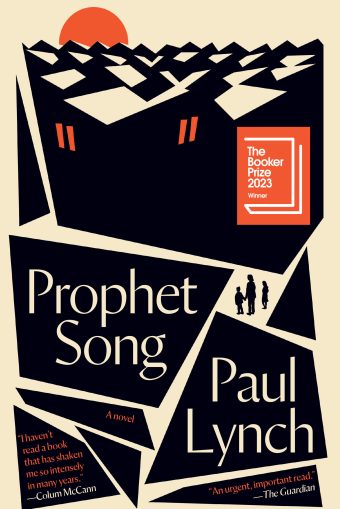 The gorgeously intricate sentences and dialogue among characters alternating throughout reminded me of the works of José Saramago. The sinister tenor of the book bore similarities to Saramago's great novel Blindness. Why did you choose to write in this style?
The gorgeously intricate sentences and dialogue among characters alternating throughout reminded me of the works of José Saramago. The sinister tenor of the book bore similarities to Saramago's great novel Blindness. Why did you choose to write in this style?
I'm aware of Saramago's work, especially Blindness, though that book wasn't a conscious influence on Prophet Song. Saramago's writing comes from a very different place, and we use the block paragraph for different reasons. I believe that the form of your novel must be justified by the deeper meanings of the text, and Prophet Song is a tale imbued with a deep sense of inevitability. There is nowhere for Eilish to turn as she grapples with the fates and seeks to outmanoeuvre them, but is carried helplessly onward. And so the reader must experience that feeling too, and they find themselves straitjacketed by the text, carried onward with nowhere to turn and no white space to catch one's breath.
Midway through the novel, 12-year-old Bailey, Eilish and her husband Larry's middle son, makes a mysterious and premonitory comment that I think is a key to the novel: "The worm is turning." Can you talk about Bailey's meaning and your decision to have a 12-year-old boy articulate this sentiment?
I remain interested in the 18th-century idea of the Sublime and have sought in my most recent novels for new ways to express or redefine it. I am searching, too, for different ways of articulating our modern terror in the way that Beckett or Kafka did in their own time. Somewhere in the back of my mind, both ideas are one. What lies unseen or beyond our comprehension belongs to the Sublime and therein lies our feelings of terror. In Prophet Song, I felt it was important to keep the specific nature of the politics to the background. Had I articulated that, it would make the book about a particular style of politics, or directed people towards a specific political message that would invite a misreading of the text. Prophet Song is metaphysical rather than political in nature, and throughout, the characters fail to comprehend the true nature of the threat. As for Bailey, a 12-year-old child grappling with the disappearance of his father and the collapse of his known world, he has no way of expressing any of this, and so he starts talking about the worm in that knowing way that children do. He has alighted upon a symbol for his terror.
It seems noteworthy that you made Eilish and her father, Simon, scientists. Science is rooted in fact, whereas politics is often governed by passions. Can you discuss this choice and what you hoped to say regarding the dispassion of science and logic versus the often less temperate nature of politics?
We have been living in an era defined by liberal democracy and rationality, and I suspect there is an unconscious bias or belief that we will continue teleologically towards the highest good arrived at by rational means. But human nature is deeply irrational (just observe yourself for a day), and it seems to me we cannot abide too much rationality. We may indeed have reached our limit of tolerable rationality, and you can see the irrational being expressed in politics and the general culture almost as though it were a natural counterforce. It's worth reading E.R. Dodd's great book The Greeks and the Irrational, which challenges the traditional view of the ancient Greeks as purely rational beings. He argues very convincingly that the irrational was deeply embedded in their culture and thought, and shows how rationality peaked and then irrationality took hold and became again the dominant force. I fear we are seeing the same thing now.
Anyone witnessing political groundswells in recent years, including in the U.S. and Brazil, knows that totalitarianism is a real possibility just about everywhere. Have you seen developments in Ireland that make you worry about the rise of a Trump or a Bolsonaro or some other would-be autocrat?
The rise of the far-right in Ireland has been small yet noticeable. It is not a threat at present, but history has shown, and continues to show, that one major traumatic event can alter the consciousness of a nation. When the reader comes to the conclusion of Prophet Song, they should recognise that they have been living in a simulation, and though it can be fiction's task to demonstrate what could happen, what happens in this book has already happened elsewhere and is happening right now. It was my intention to include a quote from Cormac McCarthy's The Crossing as an epigraph which pointed towards my intentions, but unfortunately McCarthy was ill, and we couldn't get permission in time. "The task of the narrator is not an easy one.... He appears to be required to choose his tale from among the many that are possible. But of course that is not the case. The case is rather to make many of the one." Prophet Song seeks to make many of the one, to tell a tale that speaks to multiple political realities all at once.
In the U.S., union membership has fallen drastically over the past four decades. Can you briefly discuss the labor movement in Ireland? Do you perceive threats to union stability, and, if so, to what extent did that fuel your motivation to tell this story?
Ireland, at least for now, is a stable social democracy where inclusiveness ranks high on the agenda. Even political parties on the centre right govern left, and show a deep leaning towards social justice. What many people in the U.S. consider "Socialist" is actually just the centre for many European countries. Teachers in Ireland have strong employment unions and every so often, they bring the country to a halt while seeking better pay conditions. And so, we have come to define life in a liberal democracy by our ability to unionise, to march for our rights, and to speak freely. In Prophet Song, Eilish's husband, Larry, is a trade unionist, and he is brought in for questioning by the GNSB, Ireland's newly formed secret police. He is asked to prove to them that his behaviour as a trade unionist is not seditious to the state. Now that's quite something if you have been living all your life in a liberal democracy. It's counter-intuitive and is the sign of a political tipping point that points towards the abyss. --Michael Magras
Book Candy
Book Candy
The Oxford word of the year 2023 is rizz, Internet slang for romantic appeal or charm, used mostly by young people, the BBC reported.
---
Open Culture featured the miniaturized traveling library that Napoleon took with him on military campaigns.
---
What Is "Library Binding?" Mental Floss answered the big question.
Rediscover
Rediscover: The Milagro Beanfield War
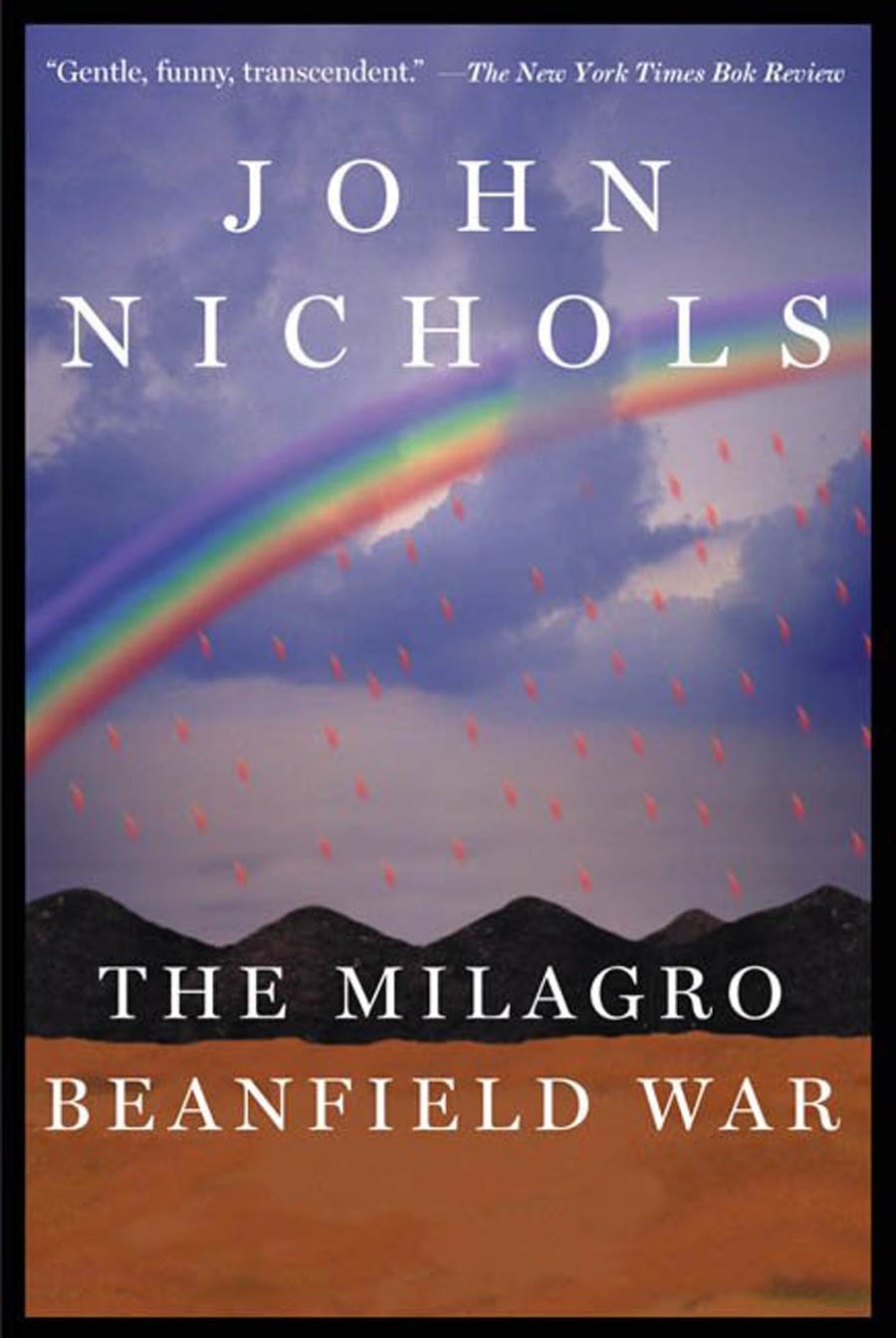 John Nichols, author of The Milagro Beanfield War and other works and a longtime resident of New Mexico, died on November 27 at age 83. Altogether Nichols wrote more than a dozen novels, as well as nonfiction that included collected essays, original photography and a chronicle of his parents' early life.
John Nichols, author of The Milagro Beanfield War and other works and a longtime resident of New Mexico, died on November 27 at age 83. Altogether Nichols wrote more than a dozen novels, as well as nonfiction that included collected essays, original photography and a chronicle of his parents' early life.
In 1965, he published The Sterile Cuckoo, which was made into a 1969 movie directed by Alan J. Pakula and starring Liza Minnelli. As the Guardian noted, "The coming-of-age book and subsequent movie were set amid private Northeastern colleges that were a familiar milieu to Nichols, who attended boarding school in Connecticut and private college in upstate New York."
His best-known novel, The Milagro Beanfield War, was published in 1974 and was the beginning of the New Mexico Trilogy. The Guardian said that the book--"about a fictional Latino agricultural community in the mountains of northern New Mexico, a scheme by business interests to usurp the town's land and water supply, and the spontaneous rebellion that ensues--won widespread recognition for its mix of humor, sense of place and themes of social justice." In 1988, it was made into a film produced by Robert Redford and starring Rubén Blades and Christopher Walken.
Stephen Hull, director of the University of New Mexico Press, told the New York Times: "A lot of his work might be characterized as a long slow-motion valentine to the mountains, mesas, high desert, sky and especially people of New Mexico. He was a comic writer who used tropes of absurdism and excess to depict essential injustices."
His other books included the other two titles in the New Mexico trilogy--The Magic Journey and The Nirvana Blues--and a memoir, I Got Mine: Confessions of a Midlist Writer, published last year by the University of New Mexico Press. The Milagro Beanfield War is available in paperback from Macmillan.


